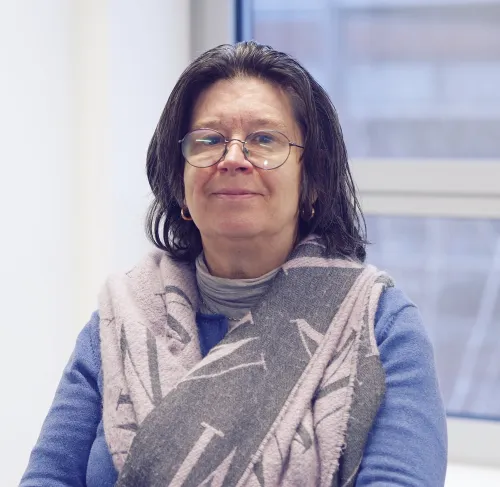Int'lFlex Course "Gender Issues in Russia" with Visiting Academic Prof. Elena Zdravomyslova
Visiting academic Prof. Elena Zdravomyslova reports on her stay in Potsdam and her findings from the Int'lFlex course, initiated by the Department of Social and Educational Sciences.
Video interview with Prof. Elena Zdravomyslova
In the interview, Prof. Elena Zdravomyslova talks about herself and her professional career. She describes the process and impressions of arriving in Potsdam. What differences did she notice from her home institution? How did she feel about the teaching and cooperation at the University of Applied Sciences Potsdam? What were the students' learning effects and reactions to the international insights the course offered? The Int'lFlex course was funded by the third-party project "FL2@Int'lFlex - Research-based Teaching and Learning in an International Context Project" to support the internationalisation of the University of Applied Sciences Potsdam through cooperation with international partners.
Summary by Prof. Elena Zdravomyslova
Collaborating is always appealing because it expands your horizon. It's always new skills, new institutions, new people. I enjoy being among my colleagues who travel and work abroad, not only in their own country. But it's also a challenge. For example, it's much easier to teach in your native language.English is not my native language, and I don't know German either.
My current research project is community care and elderly care. That's why a lot of issues being taught here and covered by research are of interest to me. I'm looking forward to expanding these contacts.I think it would be good to collaborate in the future, especially on issues of community care of the elderly.
I co-teach the class and it's okay because I have known Dr. Marit Cremer for several years. She is a great help, especially in improving my skills in online teaching. But she is also very inventive in the interactive aspects of teaching. I'm more used to the old-fashioned lecture style, and she knows better how to com-bine different teaching styles in one class. I had to adapt to the style of modern teaching which includes multimedia, interaction, feedback, etc..
I also had to adapt to the BA level, which was a challenge for me because I'm trained for a very different type of teaching. But it was the most important, because these are very young people. They don't know what they're going to do for profession. So the task is to expand their cultural horizon and help them reinvent themselves in the future.
The worst thing is hybrid teaching. Because I'm very bad at using devices and don't always have the help I need. I have to do several things at once, not only teach and communicate in a foreign language. It takes other skills. For me, it's not good because my good sides have always been face-to-face commutation. I could personalize the questions in an engaging way and share stories. It is easier to feel the room when you have somebody in the room.
I have felt very safe here and overcame all of the difficulties with bureaucracy with the help of people. I was impressed by several monuments. I like these kinds of monuments for strange things that I don't find in my country and that try to memorize and recognize many important things in our lives. I also enjoyed the parks. Especially in November, because I come from the north of Russia, where autumn is over in October. I know Berlin and big cities, I come from Saint Petersburg, but for me Potsdam is really "sans souci".
My message to students: Don't be afraid of covid, enjoy distant learning and travel as much as possible!
